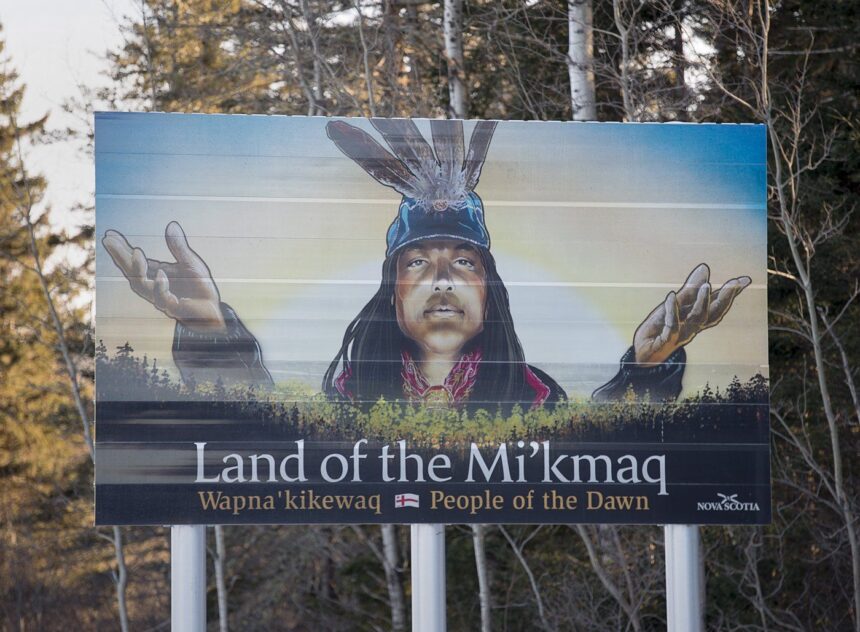The morning fog still clung to the trees as I stood with Chief Gerald Julian of Paqtnkek First Nation near an unmarked access road outside Antigonish. “This isn’t consultation,” he said, gesturing toward the hillside where exploratory uranium drilling had begun without meaningful Indigenous input. “This is being told after decisions are already made.”
For the Mi’kmaw chiefs across Nova Scotia, the provincial government’s approach to uranium exploration represents more than a procedural oversight—it’s a fundamental breach of trust and constitutional obligations that risks both environmental health and reconciliation efforts.
“We’ve been stewards of these lands since time immemorial,” said Chief Wilbert Marshall of Potlotek First Nation during our conversation at the Assembly of Nova Scotia Mi’kmaw Chiefs meeting in Sydney last week. “Yet somehow, in 2025, we’re still fighting for the basic right to be properly consulted before potentially harmful activities take place in our traditional territories.”
The conflict centers around exploration permits granted to Atlantic Uranium Corp. for sites across central Nova Scotia, including areas near the Shubenacadie River watershed—lands the Mi’kmaq have identified as culturally and ecologically significant. According to documents obtained through freedom of information requests, the provincial Department of Natural Resources approved preliminary exploration activities months before notifying affected First Nations communities.
Provincial regulations require “appropriate consultation” with Indigenous communities before resource development activities that might affect Aboriginal or treaty rights. However, the Assembly of Nova Scotia Mi’kmaw Chiefs maintains that receiving notification letters after permits were issued falls catastrophically short of the consultation standard established by the Supreme Court of Canada.
“Consultation isn’t a checkbox,” explained Dr. Constance MacIntosh, professor of Indigenous law at Dalhousie University. “The Supreme Court has been clear that meaningful consultation must occur before decisions are made, not after the fact, and must include the possibility that the proposed activity might not proceed if concerns cannot be addressed.”
The disputed exploration permits allow for preliminary soil sampling and test drilling in areas where elevated uranium deposits were identified in geological surveys conducted between 2018 and 2022. While Nova Scotia has maintained a moratorium on uranium mining since 1982, exploration activities are permitted under current regulations—a distinction the chiefs argue is meaningless when exploration itself can disturb sensitive ecosystems.
Water protection remains the central concern for Mi’kmaw communities. Chief Annie Bernard-Daisley of We’koqma’q First Nation pointed out during our walk along a stream near one of the exploration sites that “uranium naturally bonds with groundwater. Once you disturb these deposits through drilling or sampling, you risk releasing radioactive materials into waterways that our people rely on.”
Data from the provincial environmental assessment office shows that even exploratory activities can increase uranium concentrations in surface water by up to 30 percent above baseline levels—an increase the province classifies as “within acceptable parameters” but that Mi’kmaw environmental monitors consider deeply concerning.
“The provincial standards don’t account for our higher consumption of wild foods and medicines gathered from these areas,” explained Matthew Pictou, environmental assessment coordinator for the Kwilmu’kw Maw-klusuaqn Negotiation Office. “Our people fish these waters and gather medicines along these shores. Any increase in radioactive elements has a disproportionate impact on our communities.”
The provincial government, for its part, maintains that its notification process meets legal standards. Natural Resources Minister Elizabeth Harper told CBC last month that “exploration permits include strict environmental protections” and that “full consultation would occur before any mining activities could be considered.”
This position fundamentally misunderstands both the law and the practical realities of resource development, according to Chief Leroy Denny of Eskasoni First Nation. “By the time a company has invested millions in exploration, there’s enormous pressure to approve the next steps. Real consultation needs to happen before the first shovel hits the ground.”
The financial stakes are considerable. Atlantic Uranium Corp. has reportedly invested $7.3 million in preliminary Nova Scotia operations, according to industry filings with the Canadian Securities Administrators. The company’s investor presentations highlight the province’s “untapped uranium potential” and “streamlined regulatory environment” as key selling points.
Meanwhile, polling conducted by Corporate Research Associates shows 68 percent of Nova Scotians oppose uranium mining, with that number rising to 76 percent in rural communities. The Assembly of Nova Scotia Mi’kmaw Chiefs has formally requested that the province suspend all uranium exploration permits until a proper consultation framework can be established.
“This isn’t about opposing all resource development,” Chief Marshall clarified during our conversation. “It’s about having the proper process that respects our rights and protects the environment we all share. When done right, consultation leads to better decisions for everyone.”
The dispute has implications that extend well beyond uranium exploration. With several major resource projects on the horizon—including offshore wind development and critical minerals exploration—establishing clear consultation protocols has taken on new urgency.
Legal experts suggest the chiefs have strong grounds for a judicial review of the permit approvals. Similar cases in British Columbia and Ontario have resulted in exploration permits being revoked when consultation was deemed inadequate.
“The courts have consistently upheld the duty to consult as a constitutional obligation,” notes lawyer Jennifer Simpson, who specializes in Indigenous resource law. “And that consultation must be meaningful—not just a letter saying ‘here’s what we’re doing.'”
As our morning at the exploration site concluded, Chief Julian pointed to a stand of maple trees where his grandfather taught him to collect sap decades ago. “These connections to the land can’t be measured in dollars. Once these places are damaged, something precious is lost forever.”
For Nova Scotia’s Mi’kmaw chiefs, the path forward is clear: halt exploration activities, establish a consultation protocol that respects Indigenous rights and knowledge, and rebuild the trust that has been damaged by this latest failure of process.
As I drove away from the site, the question lingering in my mind wasn’t about the economic potential of uranium or the technical aspects of exploration. It was about whether Nova Scotia—a province that has made public commitments to reconciliation—is willing to match those words with the harder work of meaningful action, starting with something as fundamental as proper consultation.






